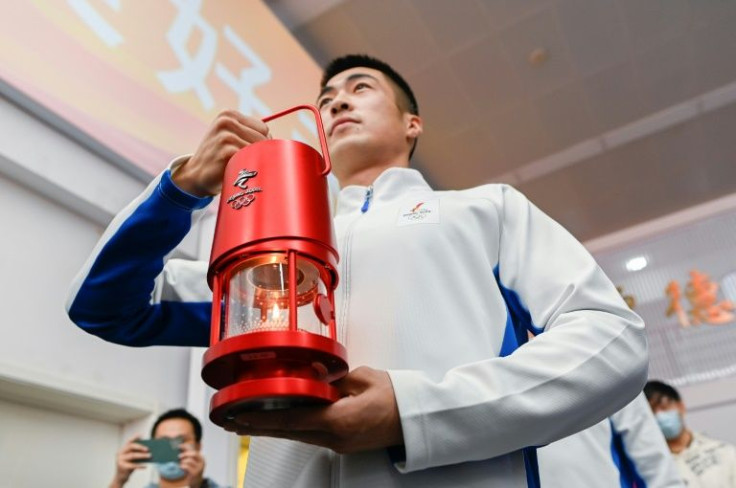UN General Assembly President To Join China's Winter Olympic Torch Relay
China on Friday said the president of the UN's General Assembly will take part in the Winter Olympics torch relay, which organisers announced would be closed to the public because of coronavirus fears.
Abdulla Shahid will participate in next month's relay before the 4 February opening of the Games, Beijing's foreign ministry said.
He is the second top UN official to attend the Winter Olympics which are the target of a US-led diplomatic boycott over China's human rights abuses, including those against its Muslim Uyghur minority.
"China welcomes Mr. Shahid to the Beijing Winter Olympics and to serve as a torchbearer," foreign ministry spokesman Zhao Lijian said at a routine briefing, adding that Shahid expressed his "firm support" for the Games.
"He believes that the Beijing Winter Olympics will show the progress of science and technology, and show the best side of China and the best side of all mankind."
Shahid is a Maldivian politician who was elected head of the UN's main deliberating body last year.
On Thursday he gave a speech urging countries worldwide and all warring parties to respect the traditional "Olympic Truce" during February's Beijing Games.
"I solemnly appeal to all Member States to demonstrate their commitment to the Olympic Truce... and to undertake concrete actions at the local, national, regional and world levels to promote and strengthen a culture of peace and harmony based on the spirit of the Truce," he told the General Assembly.
Beijing is keen to shore up international support for the Games, after a growing number of countries including Australia, the UK, Canada and Japan have joined the diplomatic boycott.
Others nations like New Zealand have refused to send officials due to strict coronavirus restrictions.
UN chief Antonio Guterres will attend the Games' opening ceremony, along with Russian President Vladimir Putin, Kazakh President Kassym-Jomart Tokayev and Pakistan's Prime Minister Imran Khan.

In recent weeks, China's foreign ministry has repeatedly emphasised Guterres' support of the Games at daily briefings, while Beijing has denied UN High Commissioner for Human Rights Michelle Bachelet a long-sought independent visit to Xinjiang.
The US government and lawmakers in five Western countries have declared China's treatment of the Uyghurs in its Xinjiang region a "genocide", with France's National Assembly the latest to do so this week.
Games organisers also announced Friday that the already scaled back torch relay will be cordoned off from the general public because of Covid measures -- days after public ticket sales were cancelled due to a recent Omicron outbreak in Beijing.
The capital city has recorded 17 cases since Monday while other outbreaks have flared across major urban centres in recent weeks.
The relay involving 1,200 torchbearers will take place across the Games' three sites and also travel to tourist attractions such as the Great Wall from February 2 to 4, when the Olympics open.
"Safety will always be prioritised for this torch relay," said Yang Haibin, a Games organising committee official, at a briefing.
"Given epidemic control considerations... the torch relay and ceremonial activities will be arranged in safe and controllable closed venues."
In a break with tradition, there was no torch relay on Greek soil because of Covid before the flame arrived in China.
Last October's flame-lighting ceremony in Greece was disrupted by human rights activists.
The upcoming Games are set to be the most restrictive large-scale sporting event since the pandemic began, with all participants required to be in a "closed loop" completely separated from the outside world.
© Copyright AFP {{Year}}. All rights reserved.






















